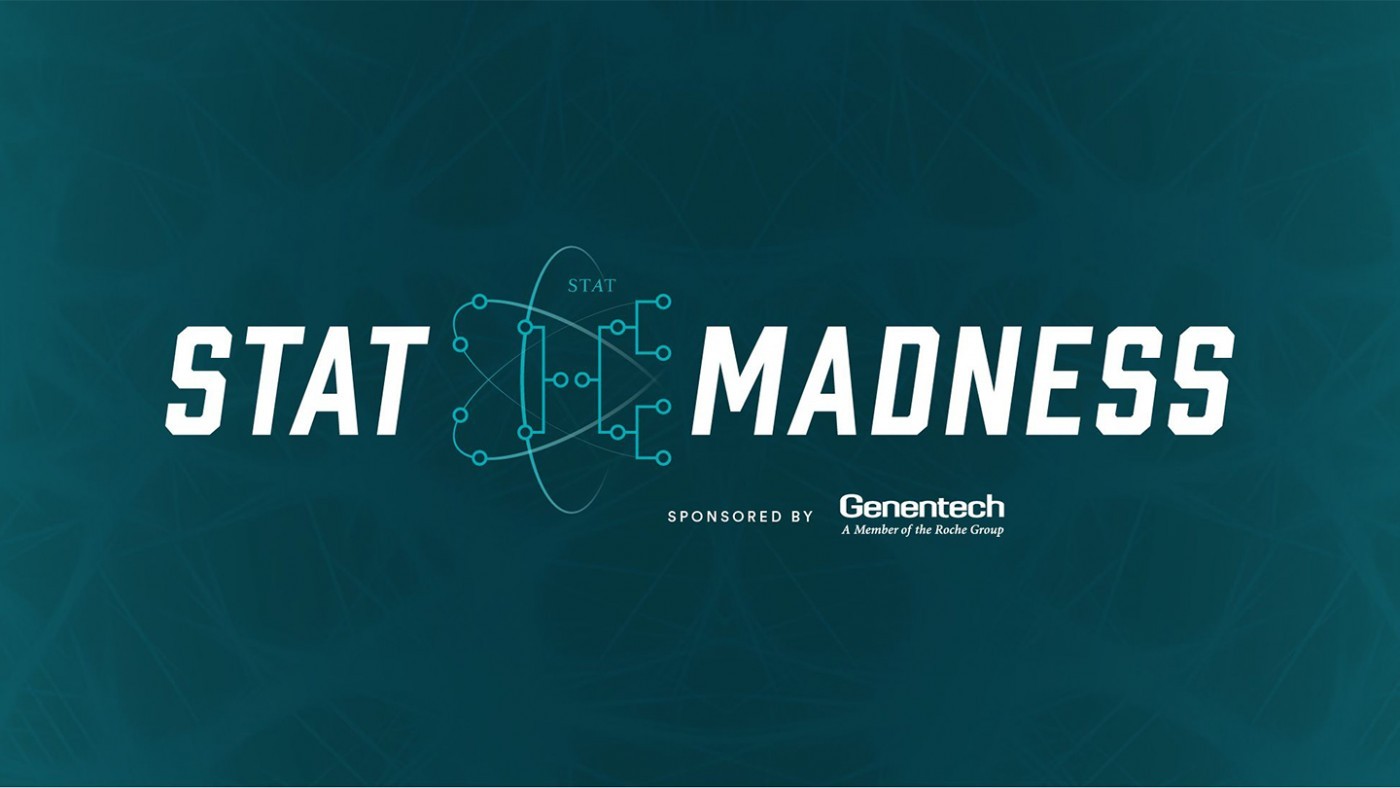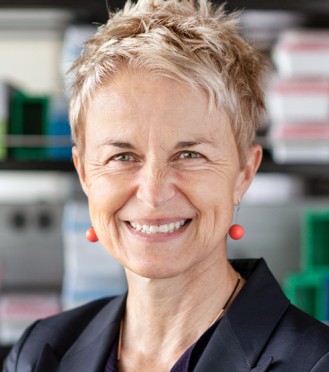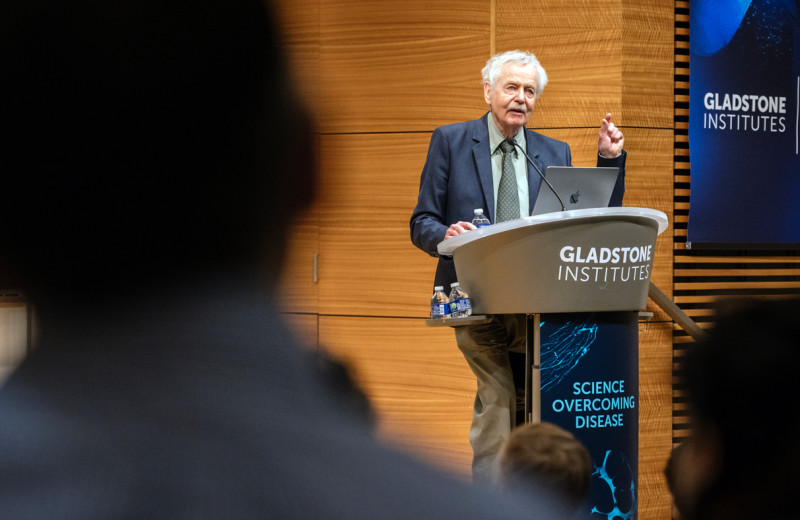Gladstone NOW: The Campaign Join Us on the Journey✕

A Gladstone discovery is a finalist in this bracket-style scientific competition.
March Madness isn’t only a time for college basketball, it’s also when you can vote for the most exciting discovery of the past year. STAT Madness is a bracket-style tournament for the best in science and medicine, and a discovery from Gladstone Institutes was selected as one of the finalists.
For the fifth consecutive year, hundreds of institutions across the United States submitted their work for consideration, and the top 64 discoveries have been matched in head-to-head competitions, vying for the popular vote.
Gladstone’s finalist: a CRISPR-based test for COVID-19 that uses a smartphone camera to provide accurate results in under 30 minutes.
The technology for this new test was developed by Melanie Ott, MD, PhD, and her team at Gladstone, in close collaboration with researchers from UC Berkeley and UC San Francisco, including bioengineer Daniel Fletcher, PhD, and Nobel Laureate Jennifer Doudna, PhD.
Why Should I Vote for This Discovery?
The new COVID-19 test leverages the gene-editing technology CRISPR and uses a smartphone camera, essentially converted into a microscope, to report results.
Not only can the new diagnostic test generate a positive or negative result, it also measures the viral load in a given sample, which could help monitor the course of a patient's infection.
This assay could provide rapid, low-cost testing to help control the spread of COVID-19 and eliminate many bottlenecks seen so far during the pandemic. Combined with mobile phones’ GPS capabilities, it could also provide real-time data to help with contact tracing and epidemiologic studies. Importantly, it could be quickly adapted to other viruses to tackle future outbreaks.
More specifically, the researchers developed a novel approach to directly detect the virus in patient samples. It skips all the conversion and amplification steps required by current COVID-19 tests (including traditional tests and other CRISPR-based tests). This eliminates the need for specialized lab equipment and could make the test portable and available for point-of-care or even at-home use.
The first round of competition is from March 1 to March 7, 2021. Vote now on the STAT website. You can also follow #statmadness to tune in, read the entries, and vote for your favorites.
A Second Gladstone Collaboration Also in the Finals
In addition to the COVID-19 test, another discovery involving a Gladstone investigator was selected as a finalist for STAT Madness. A UCSF-led international team of scientists, including Nevan Krogan, PhD, detailed the impact of 75 over-the-counter prescription and development-stage drug compounds on SARS-CoV-2, the virus that causes COVID-19.
The scientists first identified 332 human proteins that the virus uses to enter and infect cells and multiply. They then sorted through chemical libraries looking for existing drugs that target these proteins, and found 29 compounds that are already FDA-approved treatments for other illnesses. The study spawned numerous clinical trials, with several drugs being studied as possible COVID-19 treatments.
Vote for this discovery too when visiting the STAT Madness website.
A Sculptor of Modern Regenerative Medicine
A Sculptor of Modern Regenerative Medicine
Among his myriad accomplishments, Rudolf Jaenisch—winner of the 2025 Ogawa-Yamanaka Stem Cell Prize—was the first to demonstrate the potential of induced pluripotent stem cells to treat disease.
Awards Ogawa Stem Cell Prize Profile Regenerative Medicine Stem Cells/iPSCsSix Gladstone Scientists Named Among World’s Most Highly Cited Researchers
Six Gladstone Scientists Named Among World’s Most Highly Cited Researchers
The featured scientists include global leaders in gene editing, data science, and immunology.
Awards News Release Corces Lab Doudna Lab Marson Lab Pollard Lab Ye LabBringing Modern Science to Vitamin Biology: Isha Jain Wins NIH Transformative Research Award
Bringing Modern Science to Vitamin Biology: Isha Jain Wins NIH Transformative Research Award
Leveraging modern scientific tools and techniques, Jain intends to transform our understanding of the critical roles that vitamins play in health and disease.
Awards News Release Cardiovascular Disease Jain Lab Metabolism






